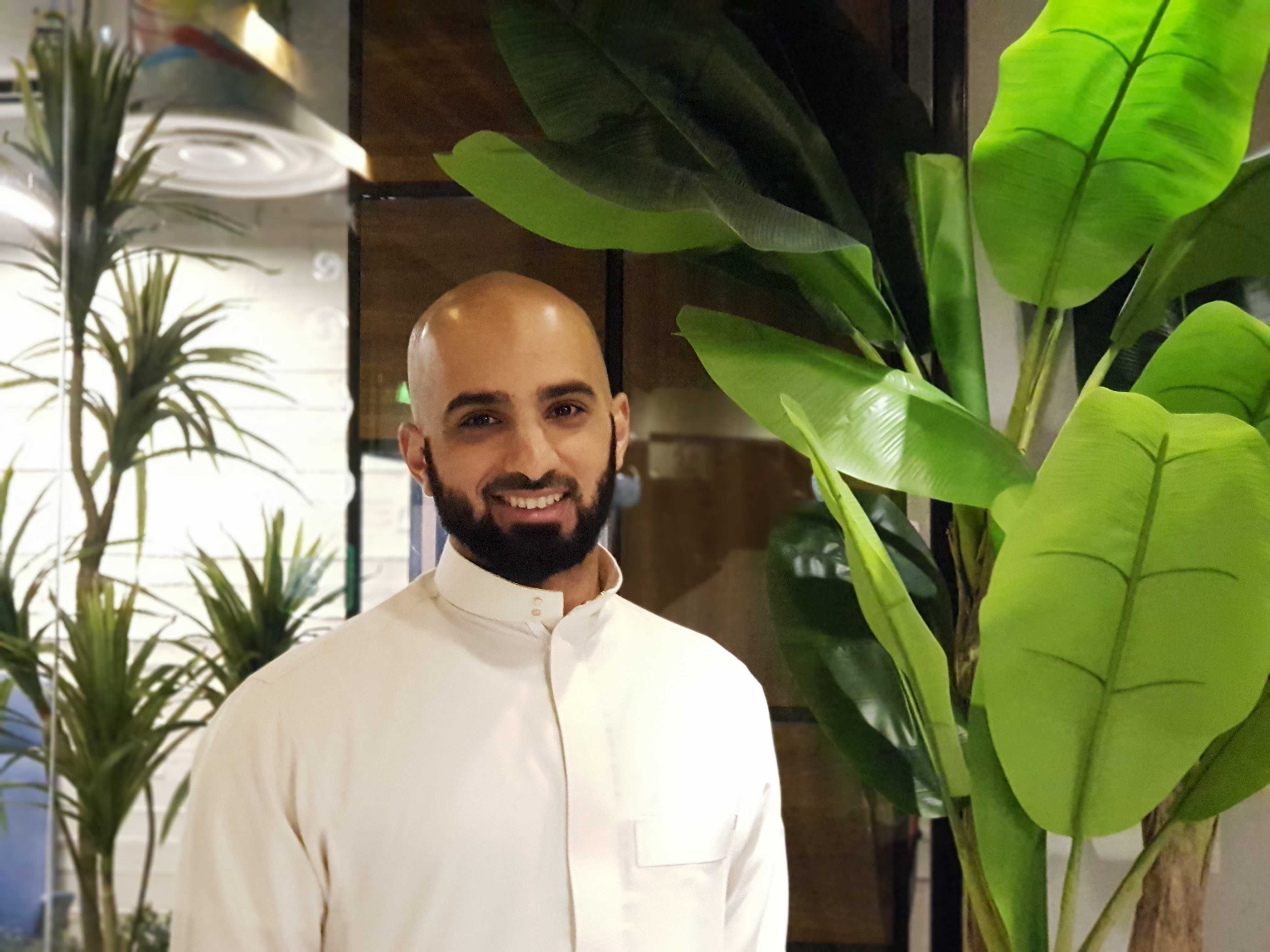In conversation with Abdullah Bahabri of Nota Nota

Nota Nota creates bespoke perfumes through a custom-made 3D printer, which enables users to mix their own perfumes according to their own tastes and desires. The Saudi Arabia-based startup was founded by Abdullah Bahabri who began developing the idea for the business in 2014 before launching the brand in 2018.
Since its launch, the company has established a presence in Riyadh, Dubai, Kuwait and London and recently won the iF Design Award. The company is now looking to raise $4 million before the end of the year.
We spoke to Bahabri, who prior to founding Nota Nota was the chief executive officer at Ebram Investments, about his entrepreneurial journey.
Why did you become an entrepreneur?
As a child I had this dream to start a car company solving the issue I had in my family. Everyone wants to see the road when they’re in the car, so I had this model for a backseat in my head and I dreamed about building this car company when I was in high school.
My definition of entrepreneurship is not just starting your own business, it’s coming up with something that has uncertainty and converting it to a business model that works. I was looking for an idea that had a competitive advantage and I thought it would come from innovation.
The trigger for leaving my previous job was every day you see your dream becoming true and getting bigger and bigger.
How did the idea for Nota Nota come about?
What motivated me was to create a company from Saudi that could go global. I was searching for an idea and I was interested in the Fourth Industrial Revolution and 3D printing was part of that. I was speaking to a perfumer and the next day I had an idea to combine the two – 3D printing and perfume.
What were your main challenges when you first started?
The biggest struggle was to find the manufacturer who believed in us. Manufacturers usually need millions of units for something they know. Convincing manufacturers is just like convincing investors. That was one issue that delayed us for a year. I was using a technology that existed in the market and needed to use it upside down so we faced a technology issue.
The challenge now is growing the business in general. We work in different areas, we are in IT, we are in perfumery, and now we have to go into retail. Every couple of months we have to start something new.
What are the main lessons you’ve learned?
Patience is the number one skill that you have to have. As an entrepreneur you always have to clear up stuff and know how it works. This takes time and if you don’t have the passion, and if you are not patient, then you will quit.
What will your industry look like in the next decade?
Perfumery is one of the industries that hasn’t taken advantage of the IT revolution. Makeup had growth with Instagram and Snapchat, it’s visual, but perfumery hasn’t grown much. You buy perfumes you know online, you don’t have the courage to buy something new. If there is a solution where people can, from a recommendation system, know if it will work for them or not then, that is where perfumery will gain from artificial intelligence in recommendations. Personalisation is the thing for all consumer goods products, it is in the early stages, but we have seen major brands are now taking on personalisation. Currently, major brands don’t have clear data about what’s going on in different regions, with the availability of data, brands can create hundreds and thousands of personalised scents and send the exact numbers to stores.


